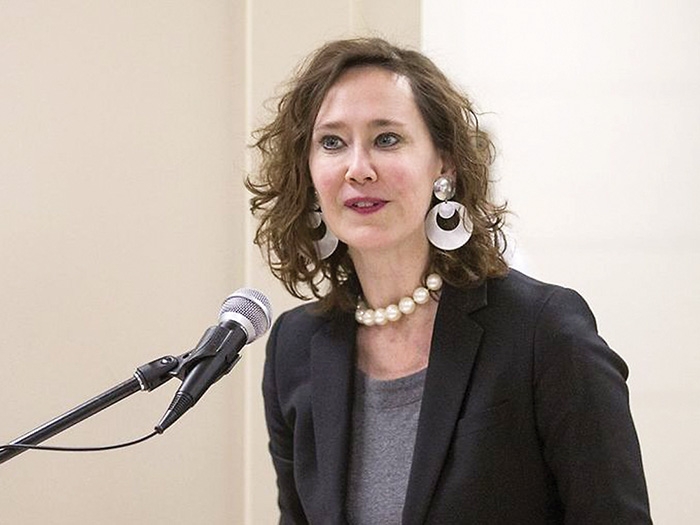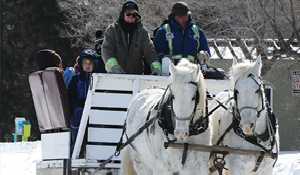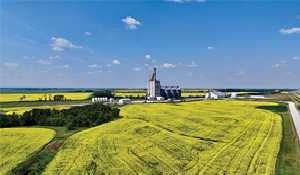Saskatchewan Energy Minister Bronwyn Eyre on Energy East
Lack of pipelines cost provincial economy $2 billion
September 19, 2018, 5:18 am
Kevin Weedmark


World-Spectator Editor Kevin Weedmark spoke with Saskatchewan Energy Minister Bronwyn Eyre last week about the need for pipelines and the town and RM of Moosomin’s efforts on Energy East.
What is the provincial government’s stand on the need for pipelines?
The provincial government is very pro-pipeline. As you know, former Premier Wall was very public about his feelings when Energy East was discontinued as a project. Everyone found that very regrettable. The same with Northern Gateway, and you will know our position on Trans-Mountain. During session we worked with Alberta. In the event that pipeline hadn’t been built . . . we were very engaged with any partner who would work with us to do what we could, and in that case it was potentially as a last resort, turning off the taps proverbially speaking.
We’ve been very vocal about support for pipelines and pipeline projects, most recently around TransMountain.
We’re very vocal about support for pipeline projects. In this case, with Energy East we’re watching some of these grassroots movements with interest. I’ve heard Sinclair Harrison’s comments about this and it’s all good when it comes to trying to recreate momentum around a project such as this and we’re certainly supportive of that.
How big a problem do you feel the lack of pipeline capacity is for the Saskatchewan energy industry?
Certainly I’ve made comments at length at various points in the last few months about the loss to royalties in the province. I believe the figure is $200 million.
Last year I believe it was $2 billion that the provincial economy lost as a result of not being able to get product to market. It’s something we take very seriously. The premier has commented on it extensively. We’re trying to do everything we can to draw attention to this and the importance of it for Saskatchewan jobs and for Canadian jobs.
As you know, the Energy East project would have reduced Eastern Canada’s dependence of foreign oil and all the transportation and export opportunities that it would have opened up, as would the Trans-Mountain Pipeline.
We’re just very hopeful in terms of the Trans-Mountain Pipeline most recently, and the federal purchase of that project—all of our purchase as taxpayers of course—that it will get built, that we can start to assuage some of the pressures that we’re seeing in our economy as a result of not being able to get that product to tidewater.
Is there anything the provincial government has within its powers to move these pipelines forward?
All we can do is be as vocal as we have been. On Energy East, former Premier Wall was very engaged in trying to do everything he could to get it built, the same with Northern Gateway, and certainly our present Premier Scott Moe has been very vocal about how important it is.
Of course, some of these things are out of our hands, in terms of Kinder Morgan and Trans-Mountain. That was ultimately a company decision to put the deadline on of May 30 in the spring. We were very hopeful there would be some resolution there. The resolution was somewhat unexpected—it wasn’t Kinder Morgan building the pipeline, it was the federal government.
Now that we’re in that position, all we can do is press and advocate for the timely resolution of that project, for all the opportunities it affords us in this province.
What are your thoughts on the local effort in Moosomin to try to have the discussion restarted on Energy East?
We have a great deal of interest in the movements that we’re seeing there, and a lot of support. In terms of Energy East, it wasn’t to be, at least in the short term.
As you know, it was pulled from the National Energy Board process and federally right now the focus seems to be explicitly on Trans-Mountain for obvious reasons.
We certainly believe Trans-Mountain should be built and must be built as we believe the other pipelines have to be built.
It’s a TransCanada decision ultimately in terms of how they see this and whether it’s something they want to pursue.
Of course, they’re dealing with Keystone XL, and the federal government is mainly focused on Trans-Mountain.
But pipelines are good, and the provincial government certainly supports them in every way we can.
What do you believe is the solution to the lack of pipeline capacity for Wester Canadian energy producers?
Federal action is the solution. There are two words. Federal action.
In terms of having purchased the pipeline, that is action, but it shouldn’t have come to that—it was a project Kinder Morgan was fully committed to pursuing.
What we’re seeing is a lot of regulatory stacking, a lot of conditions put on the National Energy Board process which as you know is also a federal process, and now we’re seeing more and more of that regulatory overload, Bill C-69, the proposed carbon tax, the clean fuel standard, these are all federal initiatives, and we believe if the investment climate would have been more transparent, Kinder Morgan would have built the TransMountain Pipeline without the federal government having to step in.
Are you optimistic that eventually that pipeline will be built, Energy East will be revisited, or there will be another pipeline to get Prairie energy products to tidewater?
There aren’t a lot of other ways, except through pipelines and of course through trains.
When you don’t have pipelines, you have to try through other means, and as we know that’s not ideal right now.
It has to be pipelines.
You ask if we’re optimistic—we have to be optimistic. We are optimistic that ultimately common sense will prevail in all of this or it’s going to have a very serious impact on the investment climate in this country.



































